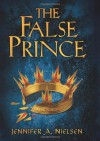SlowReader's Kingdom
"Many people, myself among them, feel better at the mere sight of a book.”
Jane Smiley
Er ist wieder da by Timur Vermes - Audiobook review

"Er ist wieder da" (Look who is back) by Timur Vermes is a very controversal book. The story is about Adolf Hitler, who wakes up in Berlin in 2011. Even though things have changed a lot and he is a little overwhelmed and helpless with all these new technologies, he realizes fast that he has to regain his old position and power. How does he accomplish that? Through a television production company.
What might sound like a comedy book is an eye-opener instead. Of course, there are funny situations and I laughed many times, but there were also many times when I cringed about some of Hitler's opinions. Vermes paints Hitler as a very smart, hard-working, and ambitious person. By describing his character traits, his personal life,his expectations in life, and how he wants to be treated like every other soldier, Hitler suddently becomes a human being - a fact that we tend to ignore when we learn about Nazi Germany in history class. You almost start to LIKE this person.
But Vermes does not whitewash Hitler's personality. In between the humanization of Hitler he places some of Hitler's crudest ideologies and conceptions. For example, the Hitler in this book draws an analogy between Jews and rats. Sometimes there are only seconds between laughing and cringing about something Hitler said.
So, how do you take a book like this? Some people say Adolf Hitler is not a topic to be made fun of. I have to respond to these people that they have not read the book correctly (or at all?). What seems like a comedy book is in fact a mind-blowing reminder to not over-estimate ourselves. We all had WWII and Nazi Germany in our history class. We all are convinced that we must learn and have learned from it. That something like that would never happen again. That we are smarter than that. And then you read this book and you realize that all it takes is another charismatic person, who knows how to talk, how to be convincing, and how to gain power and history will repeat itself.
Sometime while reading or listening to the book I realized how I have been captured by this Hitler, how I found him charismatic. While I cringed about some of his offensive topics, I smiled at his smart comments about our politics and society at the same time. I started to see Hitler as a human while he was still the monster that killed millions of people. How mind-twisting is that?
Suddenly the conviction that I was smarter, that I would never be fooled like that, was gone. Vermes reminded me to always be careful and not to forget what happened 70 years ago. The people in Nazi Germany were not stupid. In the beginning, they were just as fooled as I was, because in the end the last sentence of this book is oh so fitting and also encourages to think about this even more: "Es war nicht alles schlecht." (Not everything was bad)





 2
2
 4
4
